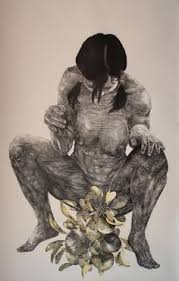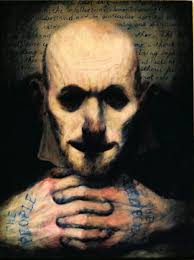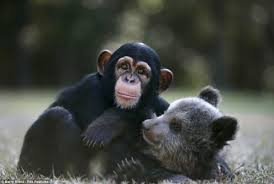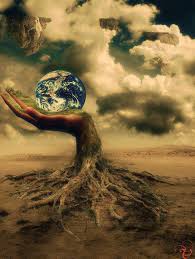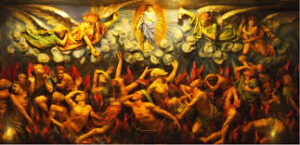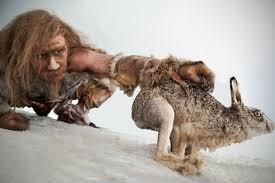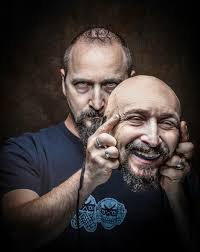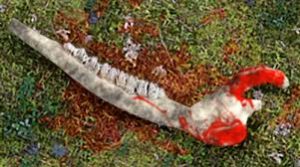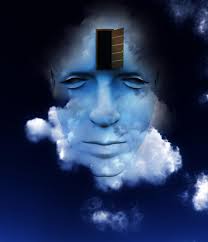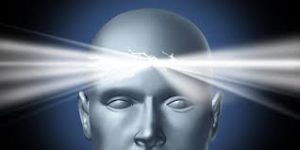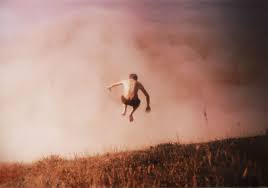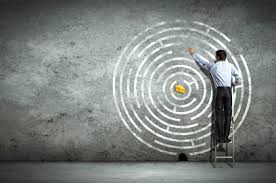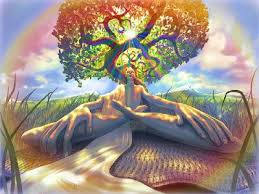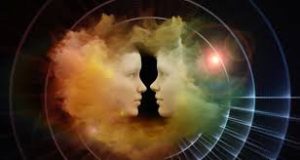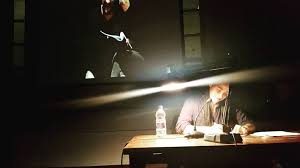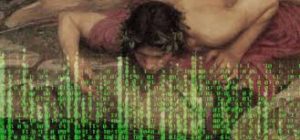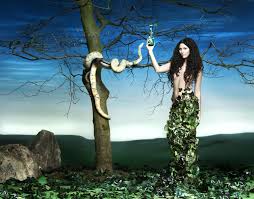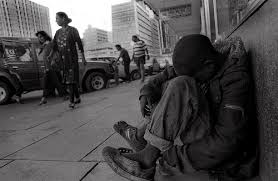The ideal blueprints provide the species with multitudinous avenues for fulfillment. Those blueprints exist mentally as ideals. They express themselves through the impetus and creativity of the species’ individual members.
Our natural athletes, for example, show through their physical expertise certain ideal body conditions. They may personify great agility or strength or power: individual attributes, physical ideals which are held up to others for their appreciation, and which signify, to whatever extent, abilities inherent in the species itself.
I believe that man and woman runs the mile much quicker now than he or she did, say, thirty years ago. Has the body’s effective speed suddenly quickened? Hardly. Instead, mental beliefs about the body’s performance have changed, and increased physical speed resulted. The body can indeed run faster than the current record (of 3:39). I merely want to show effect of beliefs upon physical performance. All people do not want to be expert runners, however. Their creativity and their ideals may lie in quite different fields of endeavor, but individual performance always adds to the knowledge of the species. Good, better, best. Is it bad to be a poor runner? Of course not, unless running is your own particular avocation. And if it is , you improve with practice.
Now our ideals, whatever they may be, initially emerge from our inner experience, and this applies to the species as a whole. Our ideas of society and cooperation arise from both a biological and spiritual knowledge given us at birth. Man and woman recognized the importance of groups after observing the animals’ cooperation. Our civilizations are our splendid, creative, exterior renditions of the inner social groupings of the cells of the body, and the cooperative processes of nature that give us physical life. This does not mean that the intellect is any less, but that it uses its abilities to help us form physical civilizations that are the reflections of mental, spiritual, and biological inner civilizations. We learn from nature always, and we are a part of it always.
Our searches toward understanding excellent performance in any area — our idealisms — are all spiritually and biologically ingrained. If many of the conditions we have mentioned are less than ideal in our society, then we can as an individual begin to change those situations. We do this by accepting the rightness of our own personhood. We do this by discarding ideas of unworthiness and powerlessness, no matter what their sources. We do this by beginning to observe our own impulses, by trusting our own direction. We start wherever we are, today.
We do not dwell upon the unfortunate conditions in our environment, but do take steps in our own life to express our ideals in whatever way is given. Those ways are multitudinous.
Generally speaking, for example, If you are seriously worried about a physical condition, go to a doctor, because your own beliefs may over frighten you otherwise. Begin with innocuous but annoying physical conditions, however, and try to work those out for yourself. Try to discover why you are bothered. When you have a headache or a simple stomach upset, or if you have a chronic, annoying but not serious condition, such as trouble with you sinuses, of if you have hay fever — in those situations, remind yourself that your body does indeed have the capacities to heal itself.
Do these exercises to discover what conditions of a mental nature, or psychological origin, are causing distress. instead of taking an aspirin for a headache, sit down, breathe quietly, and remind yourself that you are an integral part of the universe. Allow yourself to feel a sense of belonging with nature. Such an exercise can often relieve a headache in no time. But each such experience will allow us to build up a sense of trust in our own body’s processes.
Examine the literature that you read, the television programs that you watch, and tell yourself to ignore those indications given of the body’s weaknesses. Tell yourself to ignore literature or programs that speak authoritatively about the species’ “killer instincts.” Make an effort to free your intellect of such hampering beliefs. Take a chance on your own abilities. If we learn to trust our basic integrity as a person, then we will be able to assess our abilities clearly, neither exaggerating them or under assessing them.
We will not feel the need, say, to “justify our existence” by exaggerating a particular gift, setting up the performance of one particular feat or art as a rigid ideal, when in fact we may be pleasantly gifted but not greatly enough endowed with a certain ability to give us the outstanding praise we think we might deserve.
On the other hand, there are many highly gifted people who continually put down their abilities, and are afraid to take one small step toward their expression. If we accept the rightness of our life in the universe, then our ideals will be those in keeping with our nature. They will be fairly easily given expression, so that they add to our own fulfillment and to the development of the society as well.
Our impulses are our closest communication with our inner self, because in the waking state they are the spontaneous urgings toward action, rising from that deep inner knowledge of oneself that we have in dreams. We were born because we had the impulse to be. The universe exists because it had the impulse to be. There was no exterior cosmic Pied Piper, singing magical notes or playing a magical tune, urging the universe into being. The urge to be came from within, and that urge is repeated to some extent in each impulse, each urge toward action on the part of man and woman or molecule. If we do not trust the nature of our impulses, then we do not trust the nature of our life, the nature of the universe, or the nature of our own being.
Any animal knows better than to distrust the nature of its own life, and so does any infant. Nature exists by virtue of faith. The squirrels gather nuts in the faith that they will have provisions, in the faith that the next season will come, and that spring will follow winter. Our impulses are immersed in the quality called faith, for they urge us into action in the faith that the moment for action exists. Our beliefs must interact with our impulses, however, and often they can erode that great natural beneficial spontaneity that impulses can provide.
When I speak of impulses, many of you will automatically think of impulses that appear contradictory or dangerous or “evil” — and that is because we are so convinced of the basic unworthiness of our being. We have every right to question our impulses, to choose among them, to assess them, but we must be aware of them, acknowledge their existence, for they will lead us to our own true nature. this may involve a lengthy journey for some of us, with our belief systems for many of our impulses now are the result of the pressure caused by perfectly normal unacknowledged ones in the past. But our impulses reflect the basic impulse of our life. Even if they appear contradictory at any given time, overall they will be seen to form constructive patterns toward action that point more clearly towards our own clear path for fulfillment and development.
Natural attributes show themselves quite clearly in early childhood, for example, when we are allowed greater freedom to do what we want to do. As children, some people love to work with words, some with images, some with objects. Some show great ability in dealing with their contemporaries, while others naturally lean toward solitude and private meditations. Look back toward the impulsive behavior of your childhood, toward those activities that mostly pleased you.
If you painted pictures, this does not mean that you necessarily should be an artist. Only we the strength of those impulses — but if they are intense and consistent, then pursue them. If you end up simply painting as a hobby, that will still enrich your life and understanding. If your impulses lead you toward relationships with others, then do not let fears of unworthiness stand in your way. It is very important that we express our idealism actively, to whatever extent we can, for this increases our sense of worth and power.
Such action serves as a safeguard so that we do not overemphasize the gaps that may exist in oneself or in society, between the reality and the ideal condition. Many people want to change the world for the better, but that ideal seems so awe-inspiring that they think they can male no headway unless they perform some great acts of daring or heroism, or envision themselves in some political or religious place of power, or promote an uprising or rebellion. The ideal seems so remote and unreachable that, again, sometimes any means, however, reprehensible, eventually can seem justified. To change the world for the better, we must begin by changing our own life. There is no other way.
We begin by accepting our own worth as a part of the universe, and by granting every other being that same recognition. We begin by honoring life in all of its forms. We begin by changing our thoughts toward life in all of its forms. We begin by changing our thoughts toward our contemporaries, our country, our family, our working companions. If the ideal of loving our neighbor like oneself seems remote, we will at least absolutely refrain from killing our neighbor — and our neighbor is any person on the face of the planet.
We cannot love our neighbor, in fact, until we love oneself, and if we believe that it is wrong to love oneself, then we are indeed unable to love anyone else.
For a start we will acknowledge our existence in the framework of nature, and to do that we must recognize the vast cooperative processes that connect each species with each other one. If we truly use our prerogatives as an individual in our country, then we can exert far more power in normal daily living than we do now. Every time we affirm the rightness of our own existence, we help others. Our mental states are part of the planet’s psychic’s atmosphere.
A note: Our exterior civilizations do indeed mirror and reflect the great cellular civilizations, so that we try to exteriorize that kind of order and creativity.
Many of our technological advances — all of them, for that matter — are rather interpretations of the inner mechanisms of nature: sonar, radar, and so forth, as we attempt to physically or objectively reproduce the inner realities of nature. It is sometimes almost impossible to verbally describe civilizations of scent, civilizations built upon temperature variations, alphabets of color, pressure gradations — all of these highly intimate and organized, but quite outside of verbal representation.
In our lives, anything we want is possible within the contours of our natures, if only we understand that this is so.












